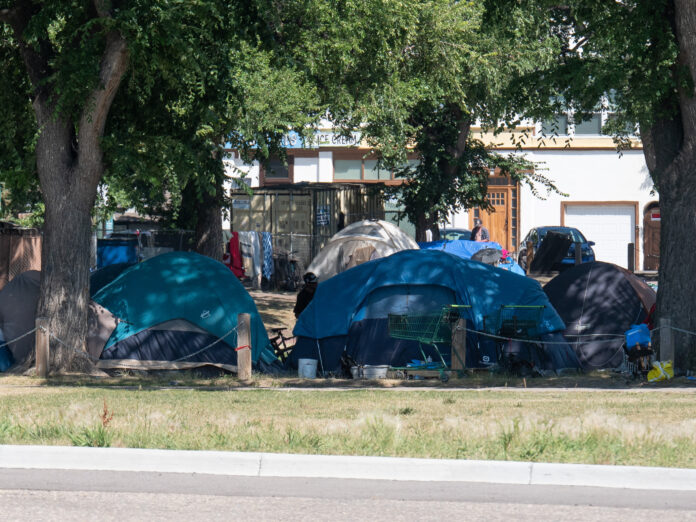One Lethbridge resident was concerned at the lack of representation of people experiencing homelessness at the city’s open house about its proposed interim sober shelter. Martin Heavy Head attended the event on Sept. 26 and decided to take action to ensure the most affected people and their voices heard. He went to the library and asked some people experiencing homelessness if they would like to come to the open house and this led to one of them being housed when Heavy Head encouraged members of council to take action.
“I looked at who I brought and I didn’t want to just bring them to the place and have them tell their story or have them be exposed to others and not have some sort of aftercare,” he said. “Once I saw that the mayor was there, I pulled him over, I pulled over a couple councillors and had them come listen and as soon as her story was done being told, I said ‘you need to do something, give her $100 cause she has nothing.’”
The woman had no shelter, food or money, according to Heavy Head and he wanted to make sure she did not walk away from reliving her trauma without some sort of help. When he explained this to Mayor Blaine Hyggen and councillor Jenn Schmidt-Rempel, they started making calls. According to a video Heavy Head posted on Tik Tok, the head of Lethbridge housing showed up and got the woman set up with an apartment.
A city spokesperson confirmed a woman was assisted at the open house, but the mayor was not available for an interview prior to publication.
“I hope it made them think about the kind of bureaucracy that exists out there and a lot of people claim that Lethbridge has a lot for resources for the homeless — the homeless are coming here for the resources. Getting these resources is jumping through hoops and pulling teeth — there is not easy access at all to the resources designed for the people on the streets,” Heavy Head said.
Heavy Head has worked with people living on the streets for a long time, but not in an official capacity, he said. “I’d like to see decision makers and service providers make decisions based on what their mom would do if it were them on the streets. How would their mom want them to be treated?”
He said he believes societal problems get put onto individuals who are experiencing poverty and homelessness and many of the supports can be seen as “moralistic and judgment based.”
“They are pointing at them and it’s like, ‘it’s your fault you’re addicted, your fault you are homeless. You have to subscribe to our rules and you have to do it our way in order to get some sort of help to be a better person,’” he said. “When you are looking at a lot of the people on the street, you are seeing the effects of neglect, but you are seeing the effects of colonization and their idea, these service providers and even people in power, their idea is more colonization to fix the problems of colonization.”
These effects stem partially from residential schools, which tore many children away from their families and left them without the ability to learn basic life skills, such as caring for a home, Heavy Head said. He pointed out that the trauma is not historic, but only a few generations old, adding his great grandfather was born before Indigenous people were put on reserves and one generation older than that, before colonization even began.
When people think of poverty, they often think of a lack of money — but Heavy Head challenges this idea. “Lots of people have money who are on the streets. It’s not about money, poverty is a larger systemic problem. Poverty is having a lack of skills, a lack of education, a lack of healthcare, a lack of basic resources and supports that make a person successful,” he said.
In order to help people who are living on the streets, he said there needs to be a network of support — something most people have, but many experiencing homelessness do not.
“We need to have a social floor where we are not allowing anybody to get that destitute. That’s where I think most places are just afraid to go to because then that doesn’t work with the system, that doesn’t work with capitalism,” he said.
The City of Lethbridge will continue gathering feedback on the proposed interim sober shelter at the Civic Centre curling rink online until Oct. 6 and expects to have a report back to council detailing feedback received around the middle of the month.




